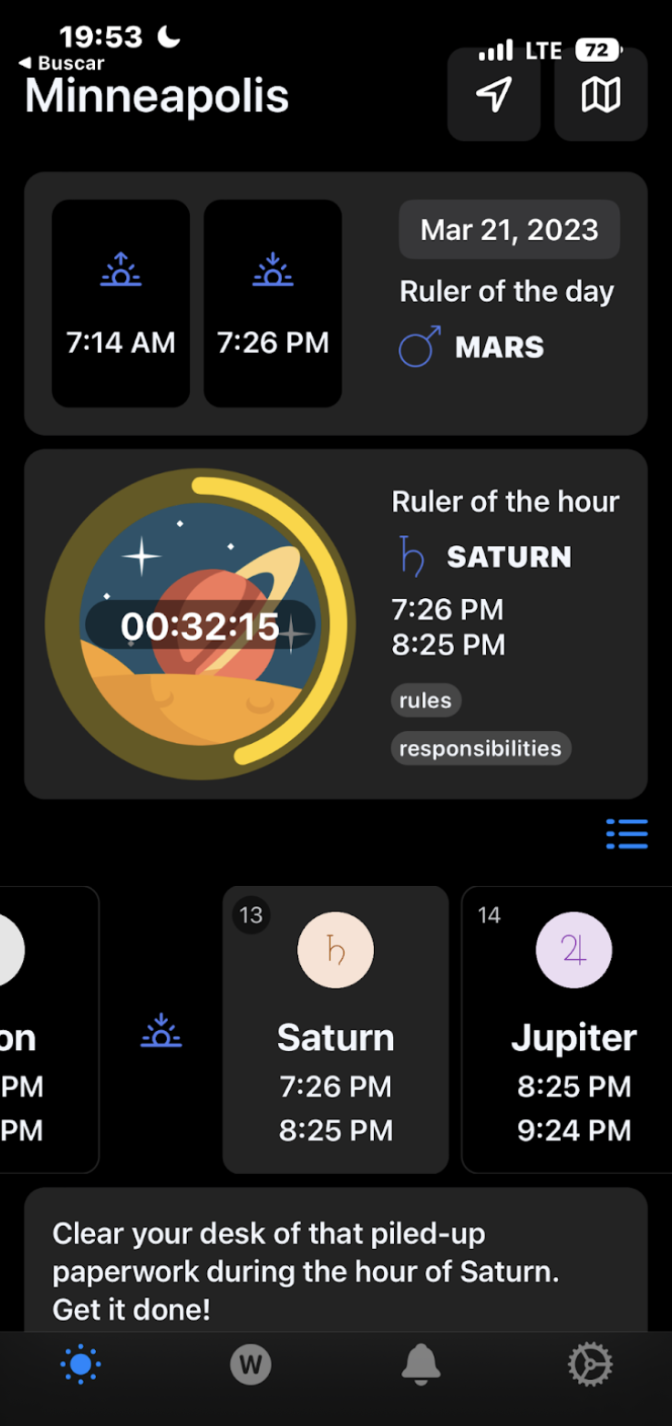Enhancing Study with Astrology: A Beginners’ Guide
Ever had one of those days where nothing seems to go right for no apparent reason? Maybe it feels impossible to stay on task during a study session; maybe concentration has eluded you during an important exam.
Now, what if I told you that astrology can be used to understand more than just people? As an all encompassing field of study, astrology has the ability to provide insight into most anything your mind might wander off to…but let’s stay focused here. After all, you’re probably just trying to boost your study grind. Don’t sweat it, I got you.
Let me introduce you to a simple astrological method called planetary hours.
To break it down, planetary hours divide the 24-hour day into 1-hour time blocks ruled by the seven planets originally visible with the naked eye. Basically, every seven hours, the cycle covers the sun, venus, mercury, moon, saturn, jupiter, and mars and just repeats itself. Now, adding another layer, the activities and themes associated with the planet ruling the hour are supported and given a boost. Easy enough, right?
The nerd in me necessitates a history brief for context, so feel free to skip over this if you just want the low-down on working planetary hours to your advantage.
Image credits: Mystical Transformations
Just as there are planetary hours, there are planetary days. And like the hours, planetary days each answer to one of the seven planets known in classical antiquity, a term referring to the Greco-Roman world during 8th century BC and the 5th century AD. Moreover, the Greco-Romans named their days of the week after the planets visible to them to honor the gods of their culture.
Interestingly, this influence can still be seen in many Romance, Germanic, and slavic languages. If you speak Spanish or studied it for school, you’ll catch just how obvious this is.
In case links aren’t your thing, the seven planets we’re talking about here are the luminaries (the Sun and Moon) and planetary bodies (Venus, Mercury, Saturn and so on, save Pluto and Uranus)
So, what does this all mean for planetary days? Well, like I’m about to explain with planetary hours, the activities and themes associated with its respective planet are essentially enhanced and promoted.
Okay, I know you’re just dying with excitement to know exactly how this all relates to boosting your study habits: it’s simple, really.
It all comes down to your timing.
By studying during an hour ruled by a planet favorable to your studies, you’re tapping into the energy of that planet. BAM. While you might not become Einstein or Carl Jung overnight, you will absolutely be making the most of your study time (as I have for the last three years—thank you early-pandemic rabbit-hole obsession).
So what does this look like? Well, if you’re studying for a math exam, you might begin studying during Mercury hour, the planet of communication and mental agility. Or, if you’re studying history, you could study during Jupiter hour, the planet of wisdom and knowledge.
But how do you know which planet is ruling which hour? Thanks to a more widespread interest in astrology, even more online astrology resources with cute designs have surfaced since I began learning. Lucky timing, lucky you.
App-wise, Planetaro is incredibly beginner friendly with cool widgets. Displaying planet names, symboles, and brief points on utlizing each hour, it’s a good place to start if you’re just learning about astrology. Available on iOS.
Already familiar with planetary symbols and interested in even more astrological calculations? Meet Time Nomad, an app I use almost daily for its plethora of in-depth tools.
Available on iOS. Android users can find the same functions on Planetary Times: Astrology.
PlanetaryHours.net is also easy to use and understand, with multiple adjustments offered from dark mode to on-and-off switches for planetary symbols.
For further information, check out this video!
Of course, planetary hours are just a tool; they won’t pass exams for you. So the grind continues. But, at least by tapping into planetary energy, you’re getting an extra edge and making the most of your time.
So, next time you’re struggling to stay focused, why not give planetary hours a try? Who knows, you might just find a winning strategy for your study sessions.


